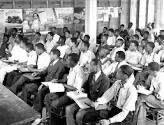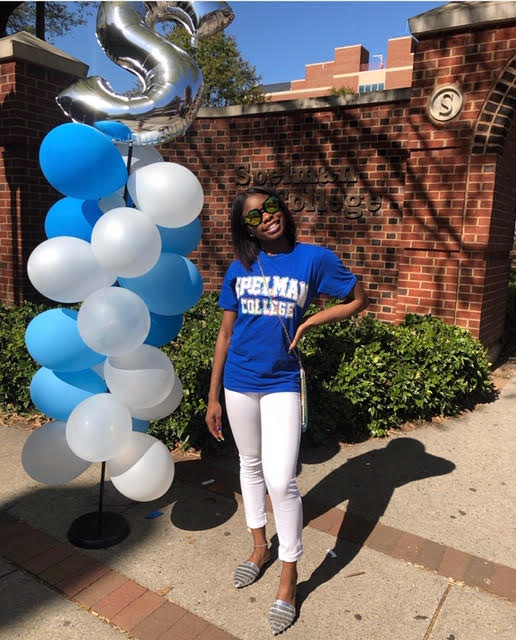Ricardo Mack articleDuring my sophomore year I knew that I wanted to apply for internships for the summer, but I didn’t know where to go and if I would even get in; Especially with my rejection from the NIHs summer program the year before. I had been compiling my own little database of internships that fall semester and when the winter break came it was time to sit down and start applying to them. I already had an absurd number of tabs open when I discovered a link sent by my research advisor. The link held an even more absurd amount of links to programs all over the country organized by institution. I tiredly took it all in and said to myself “I’m not applying to all of these, so Ricardo, if you could pick to go anywhere, where would you go?”. In my mind the name Stanford instantly appeared and as quick as it came my hands seemed to already be typing ‘ctrl + F Stanford’.
With every key stroke I could feel myself getting more and more excited. Then there it was, the Stanford Summer Research Program (SSRP). I said to myself the saying almost as worn out as I was: The worst they can say is no right. Fast forward to months later I’m sitting in the library with a friend and I get an email about my application status. I’m freaking out. I quickly scan the first sentence like I’m ripping off a band-aid and I stop mouth wide in disbelief. I’m sure many people thought I was freaking out about some assignment. My friend had just left, so I was sitting there alone with so many emotions not knowing how to feel, but I was happy. That summer after my sophomore year I worked in Dr. Nidhi Bhutani’s laboratory as part of the SSRP investigating the regulation of DNA methylation in tissue-specific gene silencing. During my time there it was a rollercoaster of emotions. I was super excited to be there and had a great time, but as I discovered like everyone else there I also felt like I didn’t belong at times. They talked a lot about Imposter Syndrome and they challenged us to ask the scientists there about if they had dealt with this concept before. Not only did everyone I talk with say that they had dealt with this issue before, they all said that they were dealing with it up to the day. I was amazed at how these scientists living the dream of many people felt the same misplacement that I did. This program also showed me for the first time in my life how uplifting a diversified environment within science can be. The late-night talks getting to know each other, what research we were doing and giving tips and ideas to each other about our research was one of the things I will never forget. I knew how important diversity was before the program but honestly, I never gave it much thought past that. Being in this program and seeing how hard everyone was pushing for diversity in science made me want to start going a step further and do the same. I later presented how this project worked to understand how transcription factors could be influencing DNA modification at the Annual Biomedical Research Conference for Minority Students (ABRCMS) (Phoenix, AZ) 2017. During this research experience, I learned to design an experiment, and to critically analyze scientific literature. This challenging experience prepared me to continue in research and gave me a better appreciation for the hard work of a scientist. How I got into the second program I can only describe as a blessing. I was accepted to participate in the Howard Hughes Medical Institute Exceptional Research Opportunities Program. This was the first time that my school was eligible for something like this and I later found out that this was indefinitely the last year that HHMI would be continuing the program. This program is highly accredited for being associated with some well-known scientists in the scientific community. This program allowed me to participate in the Summer Undergraduate Research Opportunity at the University of Massachusetts Medical School. This past summer I chose to work at UMass Medical School with Dr. Michael Green, a scientist with so much experience. Dr. Greens research focuses on gene regulation and cancer which I also hold an interest in. This internship was also filled with many opportunities for personal growth and professional development that have most certainly come in handy. I also made some really good friends that I still keep in touch with. I was pleased to return to ABRCMS (Indianapolis, IN) in November of this year to present the results of my research. |
Kobe Abney Summer work experience
This past summer I had the opportunity to work as a Student Intern under the Pathways Program at the Federal Trade Commission for the second year in a row. My experience was nothing short but amazing. I was challenged with more, complex projects while also having the chance to build lasting relationships with many people throughout the agency. What I enjoyed the most about my work experience this past summer were the numerous workshops and field trips we took throughout D.C. The agency focused on mentorship and making connections with people who have experience in the field of our interests. Also, the program encouraged us to explore D.C. and its’ culture. We visited the Supreme Court, museums and culture festivals. I think my experience working in the Federal Trade Commission has better prepared me for the real working world. I was able to improve both my intrapersonal and interpersonal skills as well as professionalism that are transferable to any career. I will be forever grateful for the opportunity working as an intern at the Federal Trade Commission. I know the relationships and work foundation I have built will last a lifetime.
|


